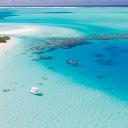Yahoo Answers is shutting down on May 4th, 2021 (Eastern Time) and beginning April 20th, 2021 (Eastern Time) the Yahoo Answers website will be in read-only mode. There will be no changes to other Yahoo properties or services, or your Yahoo account. You can find more information about the Yahoo Answers shutdown and how to download your data on this help page.
Trending News
1 Answer
- Gary CLv 79 years agoFavorite Answer
The correct definition of water hardness has to do with how easy or difficult it is to make soap suds in the water. Since few of us want to make soap suds in an aquarium, this isn't much help.
Informally, we use "hardness" to mean the amount of dissolved minerals present in water. This is more correctly called Total Dissolved Solids, or TDS.
This distinction between the dictionary definition of hardness and the aquarist's definition is important, because most "water softening" products only address "hardness" in the first sense. They make it easier to make suds in the water (generally by exchanging sodium ions for calcium ions), but they do not reduce the Total Dissolved Solids, so they are pretty much useless for aquarium purposes. In fact, a large amount of sodium in water actually causes more, not less, osmotic stress for freshwater fish than a large amount of calcium does.
Hardness is also different from salt (sodium chloride, NaCl) content. Salt does not contribute to hardness (in the first sense defined above), although it very much contributes to Total Dissolved Solids.
There are several different ways to measure hardness, and several different scales for expressing hardness. In aquarium literature, you will most often see hardness expressed as "German degrees of Hardness (DH), "General Hardness" (GH), "Total Dissolved Solids" (TDS), or "Conductivity." Condutivity is usually expressed in microsemens (µS). These scales don't measure exactly the same thing, but the differences aren't too important for this discussion. Just know that they are different scales, and notice which one is being used.
There are different test kits and electronic meters based on these different scales.
Another term you will see is "Carbonate Hardness" (KH), which is more properly called Alkalinity or Buffering Capacity. Carbonate Hardness is not a measure of the total amount of dissolved minerals in the water; it only measures the number of carbonate (CO3) ions in a given amount of water.
Hardness is of concern to aquarists because, depending on what their native waters are like, many fish are adapted to live only in soft water (low mineral content), or only in hard water (high mineral content). To give a couple of examples, rain forest dwellers like discus fish, Apistogrammas, and rummy-nose tetras need soft water in order to thrive; while cichlids from Lake Tanganyika will not do well unless their water is reasonably hard.
It's easy to increase hardness or TDS: Just dissolve some stuff (preferably mineral salts, and not table salt [sodium chloride]) in the water. There are lots of aquarium products available to add to water for keeping hard-water fish.
It's much harder to reduce hardness/TDS. To do that, you have to remove stuff that is already dissolved in the water. Distilling the water or filtering the water with a reverse osmosis (RO) unit are the two common ways of removing dissolved minerals. Again, most "water softeners" will NOT reduce the amount of dissolved minerals, because they only trade one salt for another salt.
Another option is to use a source of water that is already low in dissolved solids, like rainwater or melted snow.
Finally, pH is not the same as hardness, although hard water tends to have a high pH, and soft water tends to have a low pH. This is good to know, because hard water will resist a reduction in pH, as, for example, when you use "pH Down" products (acids). The minerals in hard water will neutralize the acids, so that the pH goes back up in a short time. Soft aquarium water will also tend to have the pH drop over time, because acids produced by the animals, plants, and bacteria will not be buffered by minerals in the water.
Whoops, sorry this is so long. But so many people are confused about what hardness is and what it is not, that I wanted to clarify some things.


